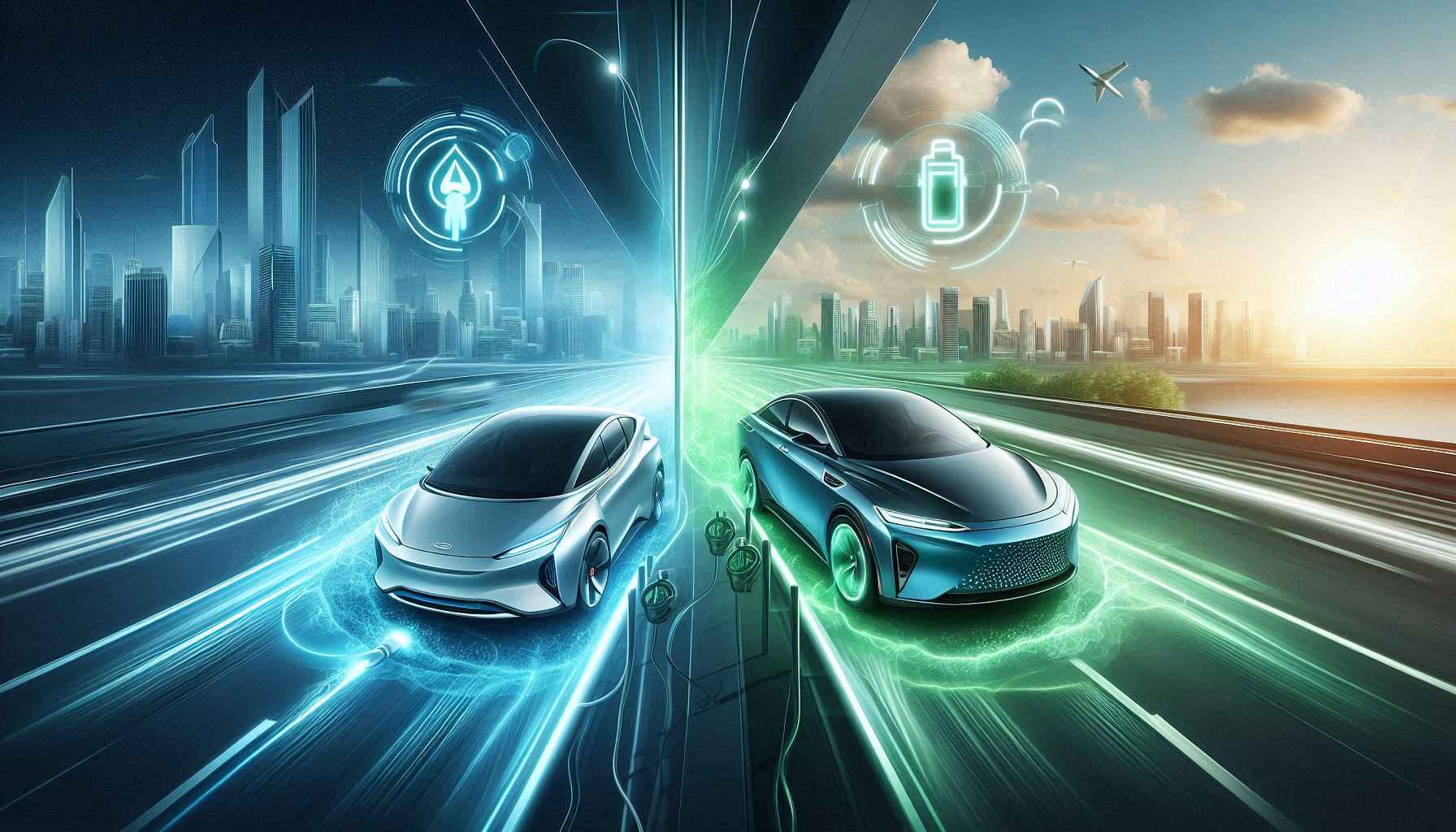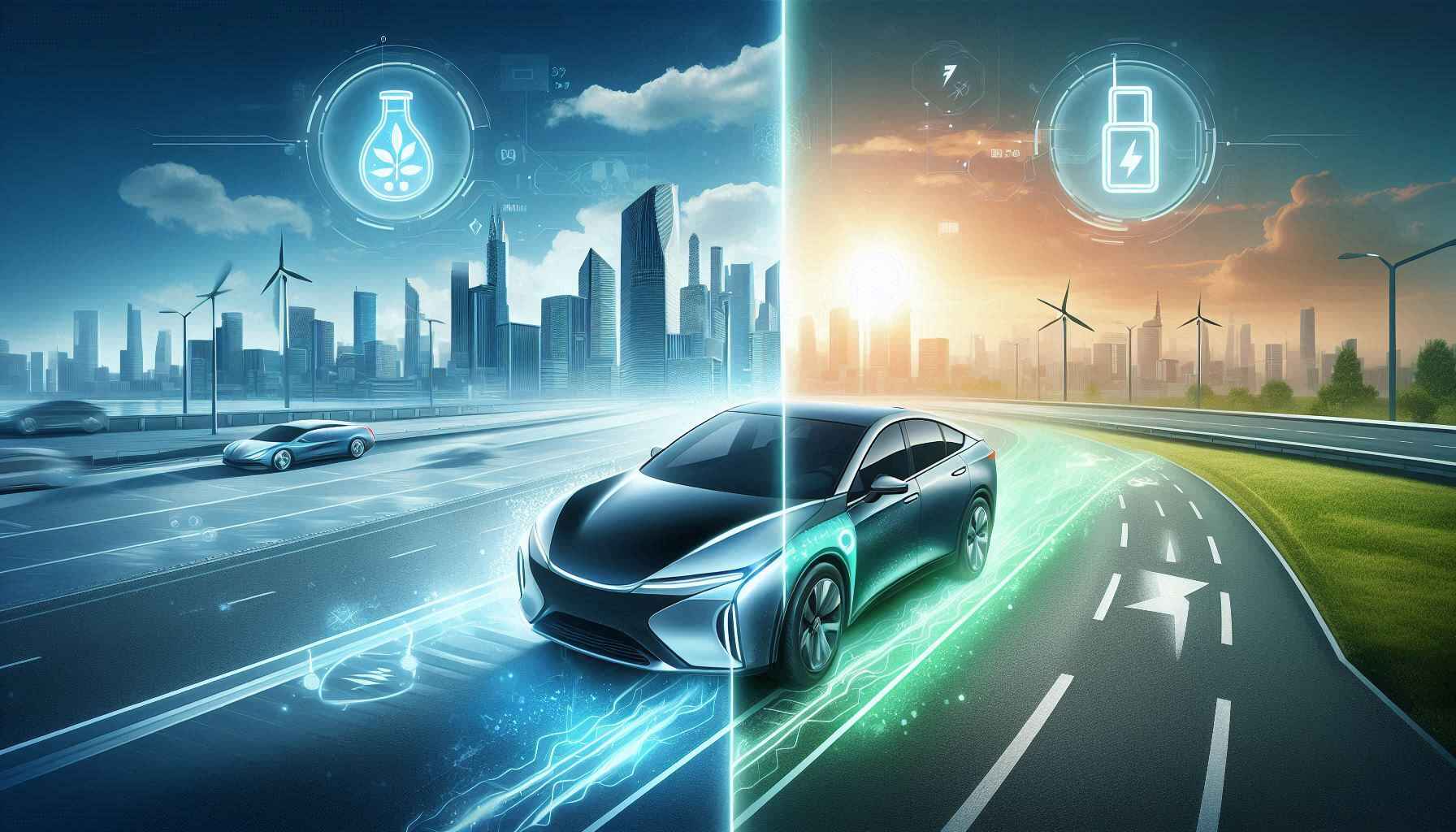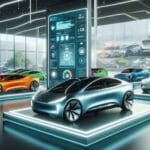
As the world shifts toward cleaner and greener alternatives to fossil fuels, two technologies are emerging as strong contenders in the race for sustainable transportation: hydrogen fuel cell vehicles (FCVs) and electric vehicles (EVs). But which one truly holds the key to a sustainable automotive future?
In this detailed comparison, we break down the differences, advantages, and challenges of hydrogen vs electric cars to help you understand which option might be better for you and for the planet.
What Are Hydrogen Cars?
Hydrogen cars use a fuel cell to generate electricity by combining hydrogen gas with oxygen. This electricity powers the car’s electric motor, and the only byproduct emitted is water vapor.
Key Features:
- Powered by compressed hydrogen gas
- Emission-free at the tailpipe (only emits water)
- Examples: Toyota Mirai, Hyundai Nexo
What Are Electric Cars?
Electric vehicles (EVs) run entirely on electricity stored in lithium-ion batteries. These batteries power electric motors that drive the car.
Key Features:
- Powered by rechargeable batteries
- Zero tailpipe emissions
- Examples: Tesla Model 3, Nissan Leaf, Chevy Bolt
Key Differences Between Hydrogen and Electric Cars

| Feature | Hydrogen Cars | Electric Cars |
| Energy Source | Hydrogen fuel cells | Lithium-ion batteries |
| Refueling Time | 3 to 5 minutes | 30 mins to several hours |
| Driving Range | 300 to 400 miles | 200 to 350 miles |
| Infrastructure | Limited hydrogen stations | Expanding charging networks |
| Emissions | Water vapor only | Zero (if charged with clean energy) |
Pros and Cons of Hydrogen Cars
Pros:
- Fast refueling, similar to gasoline
- Long driving range
- Lightweight fuel source
Cons:
- Scarce refueling infrastructure
- High cost of hydrogen production and storage
- Hydrogen is less energy-efficient in conversion
Pros and Cons of Electric Cars
Pros:
- High energy efficiency (80%+ efficiency)
- Low operating and maintenance costs
- Mature and expanding charging infrastructure
Cons:
- Longer charging times
- Battery degradation over time
- Environmental concerns over battery mining and disposal
Also Read:
- What are Advantages of Electric Vehicle?
- 7- Best Electric Cars for Car Lovers
- 10 Most Affordable Electric Cars (USA Edition)
Environmental Impact Comparison
Hydrogen Cars:
- If produced from renewable energy (green hydrogen), they can be extremely clean.
- However, most current hydrogen is made from natural gas (grey hydrogen), which emits CO2.
Electric Cars:
- Produce zero tailpipe emissions.
- Environmental impact depends on how electricity is generated (clean vs coal power).
- Battery production involves mining lithium, cobalt, and other rare earth materials, which can harm ecosystems if not managed responsibly.
Cost Comparison: Purchase, Maintenance, and Running
- Hydrogen Cars:
- High upfront costs
- Hydrogen is expensive ($12–$16 per kg)
- Lower maintenance than combustion engines
- Electric Cars:
- Moderate to high upfront costs (decreasing with time)
- Charging cost is lower than fuel or hydrogen
- Lower maintenance (fewer moving parts)
Infrastructure & Availability
Hydrogen:
- Limited availability globally (mostly in California, Japan, South Korea)
- High cost to build and maintain fueling stations
Electric:
- Rapid expansion of public charging stations worldwide
- Home charging is also a convenient option
- Supported by most governments
Industry Trends and Future Outlook
- Automakers like Toyota, Honda, and Hyundai continue to invest in hydrogen.
- Tesla, Ford, Volkswagen, and GM are heavily focused on EVs.
- Governments worldwide are investing more in EV infrastructure due to quicker deployment and lower cost.
- Many experts believe electric vehicles will dominate the passenger vehicle segment in the short to medium term.
However, hydrogen may find its place in heavy-duty transport, buses, trains, and long-haul trucks where fast refueling and long range are crucial.
Which Is Better for You?
Choose a Hydrogen Car If:
- You have access to a hydrogen station
- You need long-range and fast refueling
- You prioritize minimal downtime
Choose an Electric Car If:
- You drive mostly in cities or suburbs
- You want lower running costs
- You have access to home or public charging
Conclusion
Both hydrogen and electric cars have roles to play in the future of transportation. While electric vehicles are currently leading the race due to infrastructure and cost advantages, hydrogen cars could become vital in specific use cases like long-distance and commercial transport.
The key takeaway? Sustainable transportation isn’t a one-size-fits-all solution. A combination of technologies may be necessary to meet different driving needs while reducing carbon emissions.
FAQs
Not necessarily. Hydrogen cars offer faster refueling and longer range, but EVs are more efficient and cost-effective today.
EVs are more eco-friendly when powered by renewable energy. Hydrogen is clean only when produced sustainably (green hydrogen).
Lack of infrastructure, high fuel costs, and expensive production processes have limited their adoption.
Unlikely in the short term. EVs are better suited for most personal and city driving needs, while hydrogen may support specific industrial and commercial sectors.








